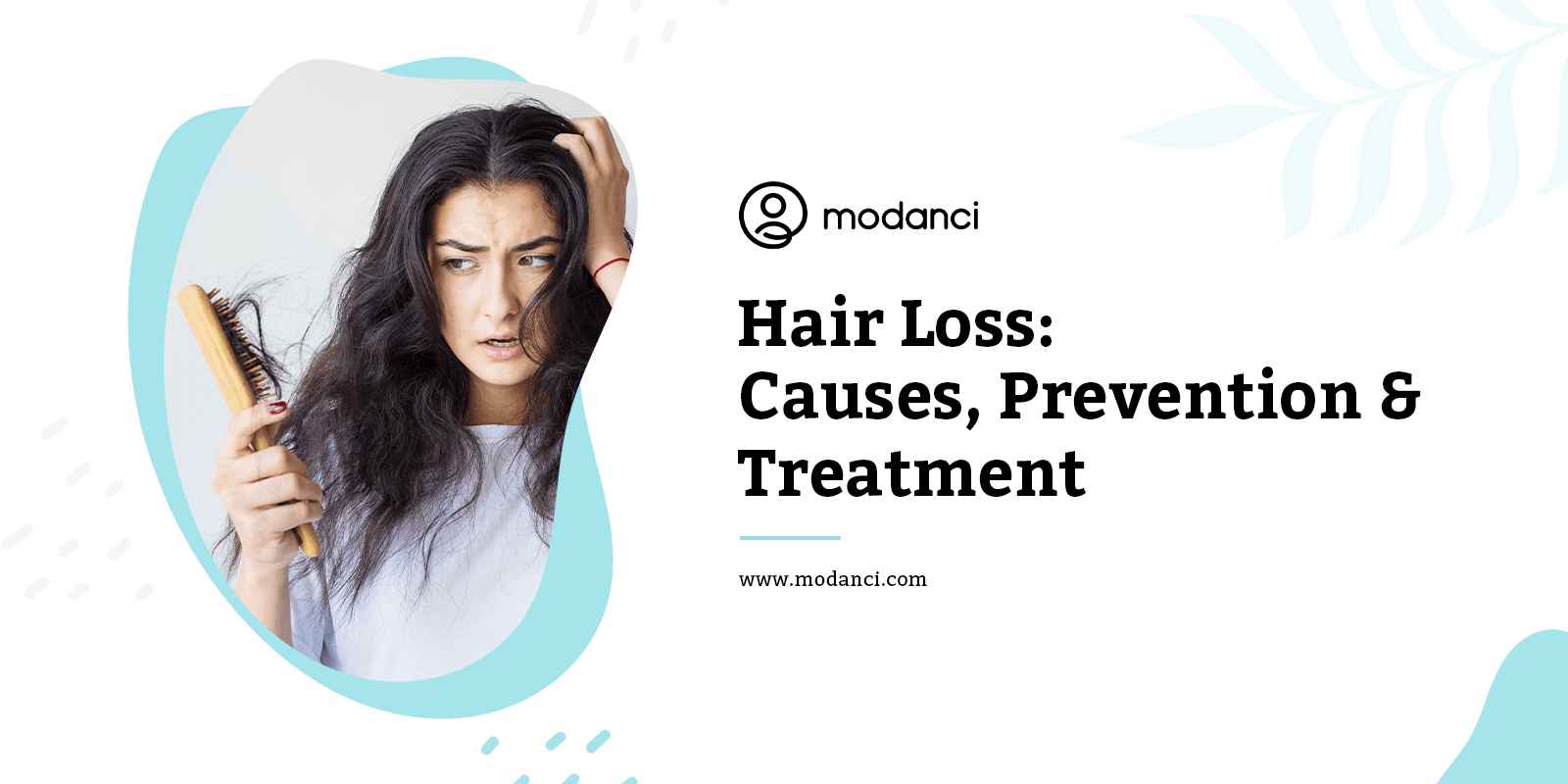Hair loss can be a distressing experience for many people, as it can affect their self-esteem and confidence. Hair loss can occur due to various reasons, including genetics, age, hormonal changes, nutritional deficiencies, and certain medical conditions. If you are experiencing hair loss, it’s essential to understand the root cause of the problem to determine the appropriate course of action.
This article will discuss the common causes of hair loss, ways to prevent it, and effective treatments to help you regain your hair’s health and vitality.
What is Hair Loss?
Hair loss, also known as alopecia, is a common condition worldwide. Hair loss can range from mild thinning to complete baldness and can significantly impact a person’s self-esteem and quality of life.
What are the Reasons for Hair Loss?
Various factors contribute to hair loss, including genetics, hormonal imbalances, medical conditions, medications, and environmental factors. In some cases, hair loss can also result from excessive styling or harsh chemicals on the hair. Below mentioned are some of the most common causes of hair loss.
- Genetics or family history
- Hormonal changes and imbalances, such as those that occur during pregnancy or menopause
- Medical conditions such as alopecia areata or thyroid disease
- Certain medications and treatments, including chemotherapy and radiation therapy
- Nutritional deficiencies, particularly in iron and protein
- Stress and trauma, both physical and emotional
- Hairstyles and hair treatments that pull or damage the hair follicles
- Age-related hair thinning and baldness.
How to Prevent Hair Loss?
Understanding the underlying cause of hair loss is crucial in determining the appropriate treatment and prevention strategies. While some causes of hair loss are beyond our control, there are steps you can take to prevent or slow down hair loss.
1. Maintain a Healthy Diet
Maintaining a healthy diet is one of the most important ways to prevent hair loss. Your hair needs nutrients like vitamins, minerals, and proteins to grow and remain healthy. A diet high in processed foods and sugar can lead to nutritional deficiencies that affect hair growth.
To prevent hair loss, ensure you get enough protein, iron, and vitamins A, C, and D in your diet. Foods like leafy greens, eggs, nuts, and fish are great sources of these nutrients.
2. Practice Good Hair Care Habits
Another way to prevent hair loss is to practice good hair care habits. Avoid tight hairstyles that can pull on your hair and cause damage. Use a wide-tooth comb or brush to gently detangle your hair, and avoid brushing it when wet, as wet hair is more prone to breakage.
Avoid using hot styling tools like curling irons and straighteners, as they can damage your hair and cause it to become brittle and prone to breakage. If you use hot styling tools, always use a heat protectant spray to minimise damage.
3. Manage Stress
Stress is a common cause of hair loss, so managing stress is an important step in preventing hair loss. When stressed, your body releases hormones that can affect your hair growth cycle. Try to manage stress by practising relaxation techniques like deep breathing, yoga, or meditation.
4. Get Enough Sleep
Getting enough sleep is also important for preventing hair loss. When you don’t get enough sleep, your body produces more stress hormones, which affect your hair growth cycle. Aim to get 7-8 hours of sleep per night to help prevent hair loss.
5. Consult a Professional
If you are experiencing hair loss, it is important to consult a professional. An Ayurvedic physician can help diagnose the cause of your hair loss and recommend the best treatment options. They may also be able to suggest dietary changes or supplements that can help prevent hair loss.
Natural Home Treatments for Hair Loss
While many commercial products are available to treat hair loss, they can often be expensive and have potential side effects. Fortunately, there are also natural home treatments that help promote hair growth and prevent further hair loss.
1. Aloe Vera
Aloe vera is known for its healing properties and has been used for centuries to treat various health conditions. It contains enzymes that can help to stimulate hair growth and improve the overall health of your hair. To use aloe vera for hair loss, apply fresh aloe vera gel directly to your scalp and leave it on for about an hour before rinsing it with warm water.
2. Coconut Oil
Coconut oil is a natural emollient that can help to nourish and moisturise your hair. It also contains lauric acid, which can help to prevent hair breakage and improve the overall health of your hair. To use coconut oil for hair loss, warm up some coconut oil and massage it into your scalp. Leave it on for about an hour before washing it with mild shampoo.
3. Onion Juice
Onion juice is rich in sulfur, which can help to improve blood circulation and stimulate hair growth. To use onion juice for hair loss, juice one onion and apply the juice directly to your scalp. Leave it on for 30 minutes before washing it off with mild shampoo.
4. Green Tea
Green tea is known for its antioxidant properties and can help to stimulate hair growth. It contains catechins, which can help to reduce hair loss and improve the overall health of your hair. To use green tea for hair loss, brew some green tea and let it cool. Apply the tea to your scalp and leave it on for about an hour before rinsing it off with warm water.
5. Egg Mask
Eggs are rich in protein and can help to strengthen your hair and prevent hair loss. To make an egg mask, whisk one egg and apply it to your scalp. Leave it on for 30 minutes before washing it off with mild shampoo.
Conclusion
In conclusion, natural remedies can be a cost-effective and safe way to promote hair growth and prevent hair loss. These home remedies and a healthy lifestyle can help nourish your hair and scalp, improve blood circulation, and reduce stress levels, ultimately leading to more robust and healthier hair.
However, it’s important to remember that these remedies may not work for everyone and that it’s always best to consult an Ayurvedic physician before trying new treatments. You can achieve and maintain luscious locks with proper care and attention for years.
Modanci’s Potensified Ayurvedic Solution For Hair Growth And Maintenance is curated by Ayurvedic doctors with 85 years of combined experience to help combat hair fall and promote hair growth. The kit includes a Handcrafted Organic Jatamansi Kokum Shampoo Conditioner Bar, an Ayurvedic Hair Oil, Nasya Oil, and Hair Tablets. Answer a few questions and discover personalised solutions for effectively tackling hair fall!
FAQs
1. What is the main cause of hair loss?
Hair loss has various causes, including genetics, hormonal changes, medical conditions, medications, and poor nutrition. However, the most common cause of hair loss is androgenetic alopecia, also known as male or female pattern baldness. This type of hair loss is hereditary and occurs when the hair follicles shrink over time, leading to shorter, finer hair until, eventually, the follicles stop producing hair altogether.
2. How can I stop losing my hair?
There is no one-size-fits-all answer, but ways to prevent hair loss include maintaining a healthy diet, reducing stress, avoiding tight hairstyles, using gentle hair care products, and seeking medical treatment if necessary.
3. Can hair loss grow back?
In some cases, hair loss can grow back. It depends on the cause of the hair loss. For example, if the hair loss is due to a temporary condition such as stress or medication, the hair may grow back once the underlying condition is resolved. However, if the hair loss is due to genetics or permanent damage to the hair follicles, it may not be possible for the hair to grow back.
4. Which vitamin deficiency causes hair loss?
Vitamin deficiency of vitamin D, B vitamins (especially biotin), and vitamin E are commonly associated with hair loss.
Read More:




